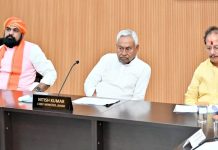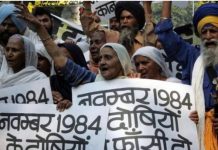Years ago, as a student of English literature at the Panjab University, I was dismayed how the protagonist in Hamlet, the masterpiece by the bard William Shakespeare, could address in his soliloquies his lady love Ophelia as “Frailty, thy name is woman”. That showed the mindset that prevailed in sixteenth century England. Guru Nanak Dev had a word of advice for people when he penned “So kyon manda aakhiye jit jamme rajan” (Why call ‘her’ inferior? From her, kings are born”).
This fortnight’s cover story describes the poignant tale of being a woman in India. Ridhima Malhotra, who worked on the story, opined that “in our country, the real trauma of a sexual assault victim begins after the physical attack has ended. We live in a patriarchal society and this is reflected in the mindsets of all those who survivors come in close contact with after being abused, including their own families. In a sexual assault, the crime scene is the woman’s body. It cannot be treated like a regular crime scene such as a room or a road.” Kanhaiya Bhelari, who reports from Bihar, wrote that exactly 99 years ago, Mahatma Gandhi visited East Champaran district of the state to fight against the exploitation of farmers by the British. Today, people of the district are praying for the rebirth of Gandhi to ensure the end of atrocities against women. Mudit Mathur from Uttar Pradesh reports that deep-rooted gender bias and social inequalities have aggravated the situation in the most populous state of the country. The growing State practice of diluting the seriousness of the crime by doling out heavy compensation to silence the victims stems from the political leaderships’ age-old biases of gender inequalities. Prateek Goyal quotes from a report of National Crime Records Bureau that Maharashtra has recorded the highest number of cases of assault on woman with intent to outrage her modesty. In fact, during a Lok Sabha proceeding in 2015, Union Minister for Women and Child Development Maneka Gandhi stated that Maharashtra had recorded highest number (13,287) of cases of rape and assault on women in a year. MG Banga writes from Haryana that being in the vicinity of the national capital has meant prosperity but this has failed to transform the orthodox mindsets and prejudice that is reflected in Haryana having one of the lowest sex ratios in the country besides rise in cases of female foeticide, honour killing, rape and dowry menace.
As per our team of reporters, unless our elected representatives distance themselves from disgusting parochialism and each individual makes a conscious effort to be that change, nothing will change! We at Tehelka are waiting for that change to happen!!
letters@tehelka.com














